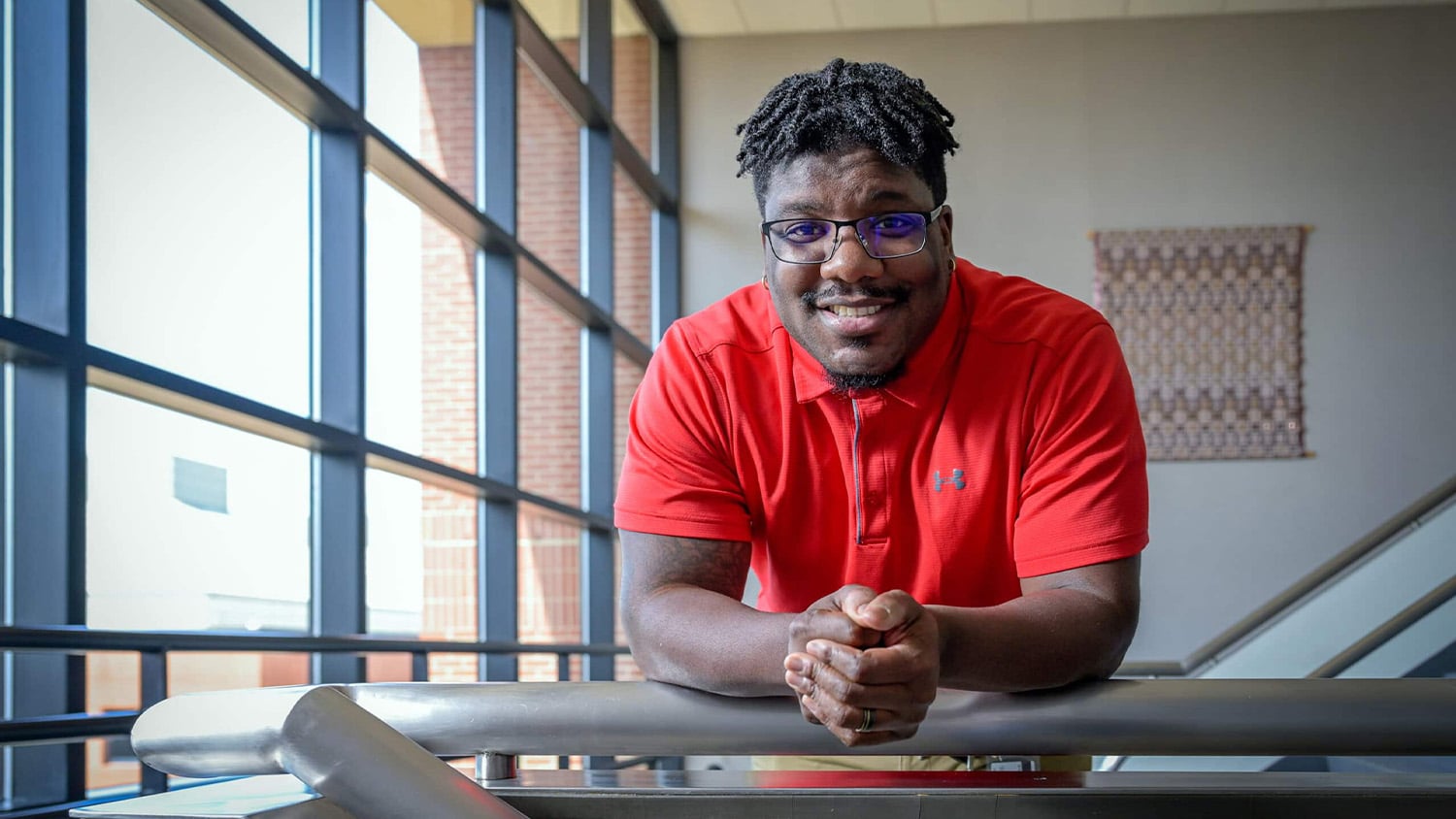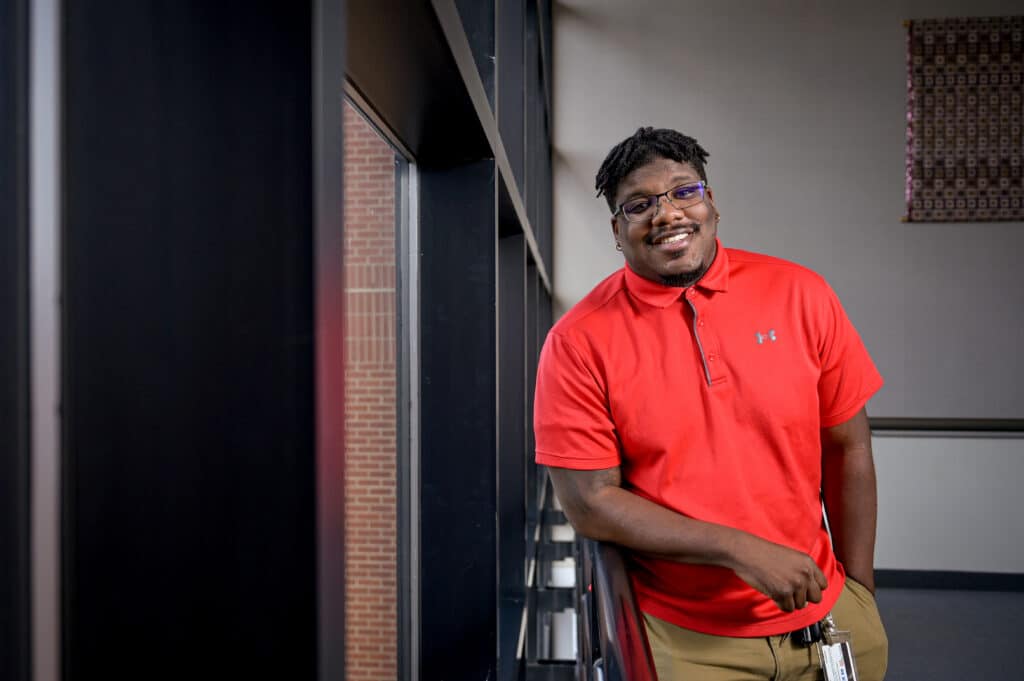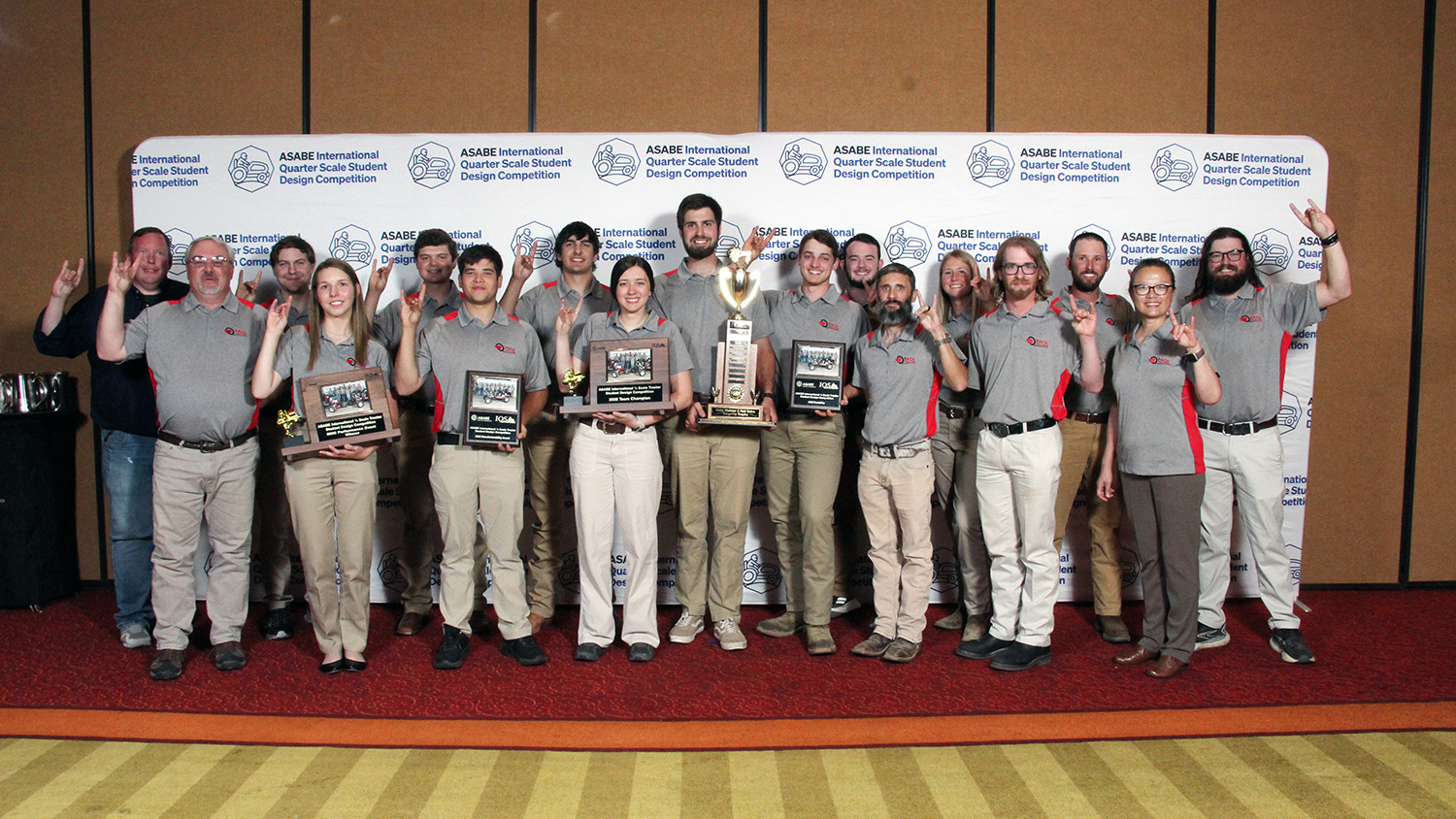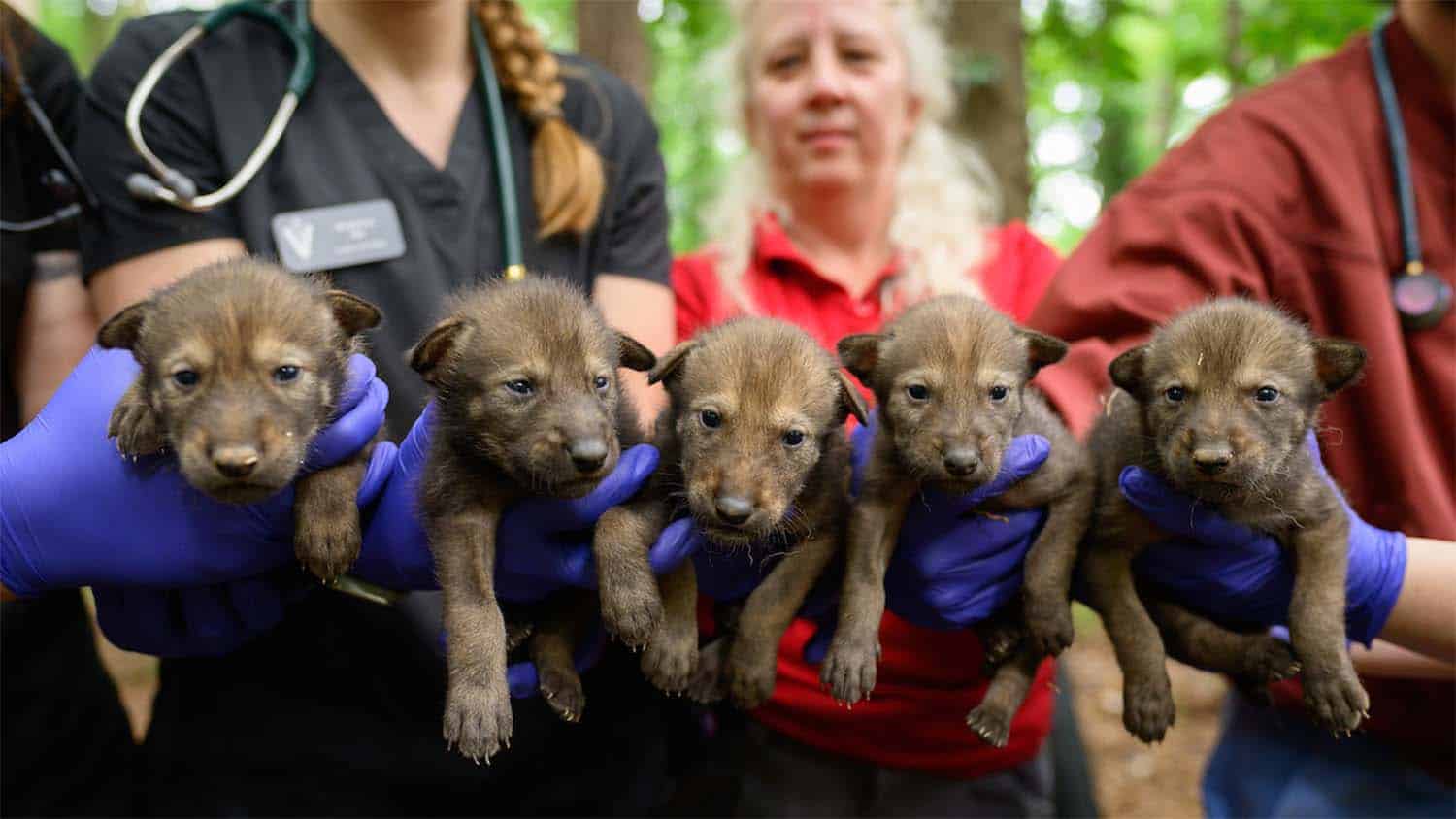In Service to His Community
For Bredell Moody, the embedded counselor for the Wilson College of Textiles and the Graduate School, helping people cope with mental health struggles is a calling as much as a career — one he can take to new levels now that he has his Ph.D.

Bredell Moody has been helping others since he was a boy.
He and his sister spent summers with their grandmother in Elizabethtown, North Carolina, where they packed bags of food to hand out to people at a crisis center in Bladen County. Their grandmother hosted fish fries where everyone was welcome to grab a plate, whether she knew them or not.
“She instilled service to the community early,” Moody says.
He has continued that legacy of service at NC State. Moody is the embedded counselor for the Wilson College of Textiles and the Graduate School. He graduated this month from the College of Education with a doctorate in counseling and counselor education that opens the door for him to train others to help people as well.
“To me,” he says, “clinical mental health counseling has just always been how I can be of service to my community.”
Helping Students From the Start
Moody’s journey at NC State began in 2017 when he joined the Counseling Center as an academic counselor tasked with helping students who wanted to drop courses or withdraw from the university completely. He talked to students about their options and potential effects on their academic progress and financial aid. He also talked to students about how these decisions affected them personally.
“What does all this mean emotionally? Mentally? What does this mean if you have to have these difficult conversations back at home with your parents? It was all of it: helping students navigate their journey academically while also holding space for who they were outside of the student role,” he says.
When the spring 2018 semester arrived, Moody asked the leaders at the Counseling Center if he could broaden his responsibilities to hold one-on-one sessions with students, run workshops and help with triage counseling. He had the qualifications; he already held a master’s degree in clinical mental health counseling from the University of North Carolina at Pembroke. The center agreed, and he became a triage counselor.
Triage counselors read forms filled out by students and determine their level of risk. Routine follow-up questions include how the student is performing academically, whether they’re getting enough sleep and how well they’re eating. Counselors might also ask about any recent trauma or suicidal thoughts. They then determine what resources are available through the Counseling Center. Students at risk to themselves or others are seen as quickly as possible. Counselors can also connect students to resources elsewhere on campus, such as Pack Essentials or the LGBTQ Pride Center.
The Counseling Center also provides workshops and groups for students. Workshops encompass multiple sessions over about three weeks and cover topics such as anxiety, depression and mindfulness. Groups meet on a regular basis and can last a whole semester. Moody has been involved with two groups: one for Black men known as the Shop and another called Come as You Are that focused on addictive behaviors.
“There’s a sense of being affirmed as a student and as a human: ‘I’m not in this alone; other people are struggling as well,’” Moody says. “They’re talking about their subjective experiences while offering their own coping strategies. There are resources that are being passed down through each person’s narrative that come with the community aspects of those workshops.”

Part of an Embedded Team
Moody is still on campus helping students, but he’s not in the Counseling Center anymore. Now he’s the embedded counselor for the Wilson College of Textiles and the Graduate School, a position he started in February. His office is in the Textiles Complex on Centennial Campus.
Although he’s available to both undergraduate and graduate students, he has mostly seen international graduate students so far. He helps them navigate their assistantships and job opportunities along with more personal matters.
“There’s so much that they are having to hold that domestic graduate students don’t,” he says. “To be an international graduate student away from home, away from family, while also trying to pick up the language, the different learning style that may be associated with the West — it’s just amazing that they’re even here.”
Moody says he works hard to be empathetic, which he describes as a two-step process.
“I need to be able to try to put myself in their shoes, but there needs to be an action behind it,” he explains. “I’ve never had the experience they’ve had of being an international graduate student. But I can connect to that feeling of loneliness, that feeling of isolation, that feeling of being homesick, that feeling of uncertainty about what I’m doing here. Being able to connect with that is the first part of empathy — but what’s the action behind that?”
Sometimes that action is asking others for help. Moody connects students to sources of support on campus, just as he did when he was a triage counselor, because he knows those supports can help more than he can. He also leans on the other units’ embedded counselors. They chat daily over Slack and meet once a week.
“That’s the only way we’re going to have success — if we can all come together and discuss what we’re seeing as embedded clinicians and how we can support each other to be a successful embedded team,” Moody says.
Coming Through the Darkness
At the same time he was helping students, Moody was a student himself, working toward his Ph.D. Although his new degree opens up the possibility of working as a college instructor, he plans to stay on campus as an embedded counselor.
“I love the clinical piece of being a counselor,” he says. “I love being able to work with students and other people, individually or in a group format. I love doing the clinical work and being a practitioner. But I also have an interest in teaching and preparing counselors in training. I think that’s my job right now, to blend all the opportunities together and figure out what works best for me and my family.”
It wasn’t easy for Moody to balance work, school and life in general. He says there were times when he “got lost in the Ph.D. journey” and didn’t believe he would finish. He credits his family, especially his wife, with helping him through those struggles. He also uses tactics to protect his own mental health: positive self-talk, music and, most of all, fishing.
It’s OK to not have the answers. It’s OK to be uncertain. It’s OK to not have clarity. But you cannot be moved from faith in yourself, the confidence in yourself to figure it out.
“I consider fishing to be a mindfulness practice because I can get out there and talk to myself, or I can not talk to myself,” says Moody, whose local fishing spots include Lake Raleigh on Centennial Campus and Shelley Lake in north Raleigh. “I’m always present. With each cast, I’m aware of what my arm feels like. I’m aware of where my wrist is pointing so I can hit the right spot in the water. When I catch the fish, I’m intentional about holding the fish when I catch it so I can feel the fish in my hand. When I put the fish back in the water, I put my hand in the water with the fish. I cannot lie; fishing has been critical to this journey for sure.”
There’s one important lesson he’s learned as a student: Don’t lose faith in yourself.
“It’s OK to not have the answers. It’s OK to be uncertain. It’s OK to not have clarity,” he says. “But you cannot be moved from faith in yourself, the confidence in yourself to figure it out. You have to maintain the confidence and the belief that you can piece that puzzle together.
“My darkest time during the Ph.D. journey was when I no longer believed in myself, when I no longer thought I would get to the end. But by talking to the people who love me and who support me, being able to reflect on the stuff I had accomplished before this journey and recognizing who I was outside the student role, I got back to believing I could get back to this day of graduating.”


